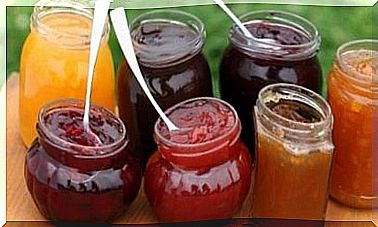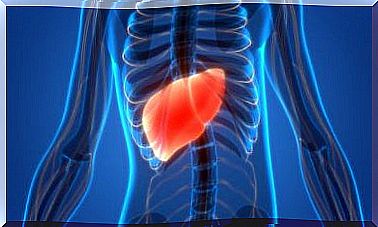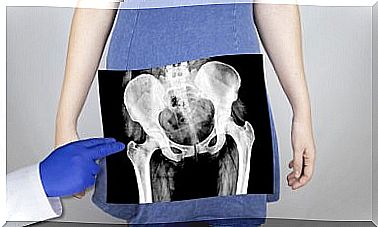7 Foods You Can Consume To Improve Your Circulation
A healthy and balanced diet is essential to achieve optimal circulation and avoid the accumulation of harmful substances, which can lead to serious problems.
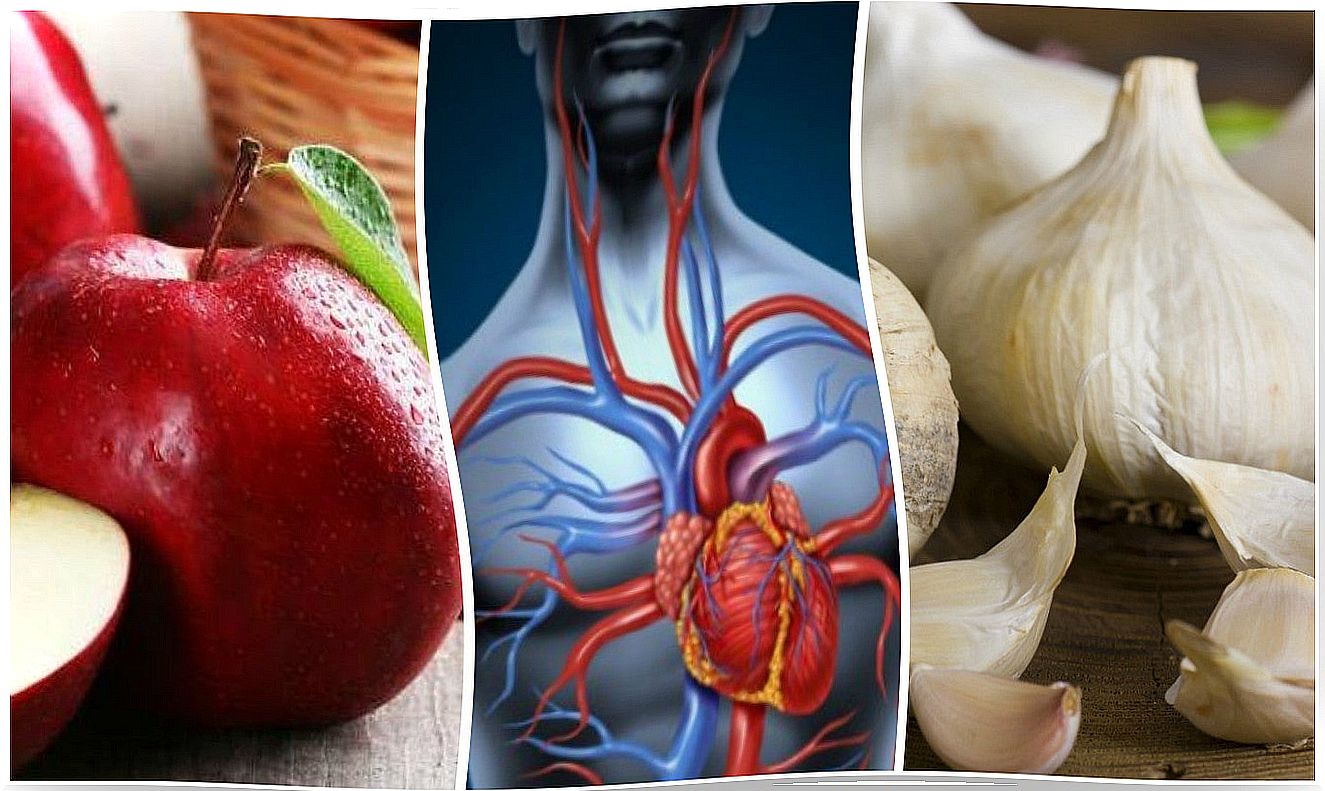
One of the easiest ways to improve blood circulation is to properly meet nutritional needs. This means that it is necessary to review eating habits and correct anything that is not providing health benefits.
The most common dietary corrections are as follows:
- Increased water consumption (since not enough is usually drunk to hydrate the body)
- Increased consumption of vegetables and fruits.
- Reduction of the consumption of fried foods, sweets, caffeine and, in general, foods with a low nutritional contribution.
- Introduction of foods rich in nutrients that promote cardiovascular health.
- Substitution of salt for aromatic herbs and other condiments to season food.
Foods to improve your circulation
1. Ginger
Ginger root is a very popular spice in the alternative treatment of problems that interfere with blood circulation. It contains an active substance known as ‘gingerol’ which, when assimilated in the body, acts as an anti-inflammatory and analgesic.
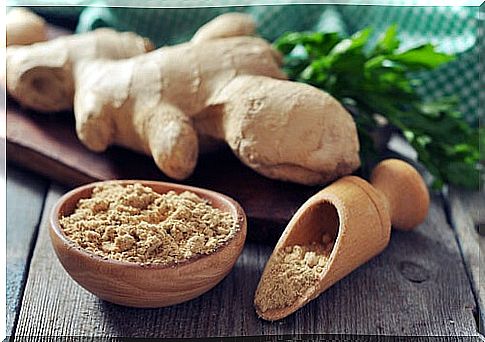
2. Watermelon
Known around the world as one of the most refreshing fruits, watermelon is a fruit that can be consumed on a regular basis. It is used to combat one of the most frequent problems derived from poor circulation: fluid retention and swelling.
Its high water content gives it a powerful diuretic effect that contributes to the expulsion of fluids that inflame the tissues. This effect helps reduce the risk of high blood pressure and actually helps prevent blood clots.
3. Turmeric
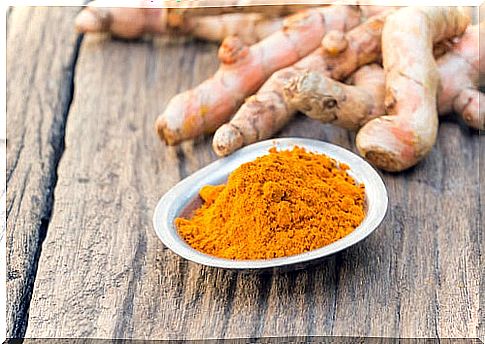
Turmeric is a spice valued for its anti-inflammatory, analgesic and anticoagulant power that, since ancient times, has served to complement the treatment of many conditions that put cardiovascular health at risk.
Its main asset, curcumin, reduces cholesterol levels in the arteries and improves the passage of blood through them. Its powerful antioxidants inhibit the damage caused by free radicals and help prevent circulatory diseases.
4. Apple
The apple is one of the foods known as “venotonics”, since its intake acts as a natural tonic for the veins and capillaries. Its high supply of antioxidants strengthens the arteries and helps improve blood circulation.
Its usual intake, at least one piece a day, favors the reduction of cholesterol and other waste substances that accumulate in the blood, given its content of pectin and polyphenols.
5. Peppers to improve your circulation
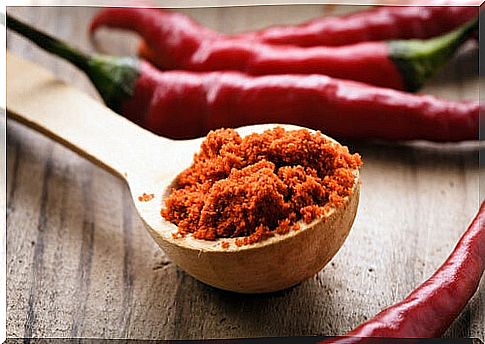
Red bell peppers contain a substance called capsaicin that, in the body, has a powerful analgesic and anti-inflammatory action. They also concentrate other antioxidants such as carotenes and vitamin C, necessary to prevent the narrowing of blood vessels.
6. Garlic
Used for multiple culinary and medicinal purposes, garlic is one of the vasodilator and anticoagulant foods that benefit circulation throughout the body.
Its sulfur compounds improve the oxygenation process and, at the same time, help remove toxic substances that are retained in the blood. Allicin, its active compound, prevents plaque formation on arterial walls and reduces the risk of obstruction and hypertension.
7. Fatty fish
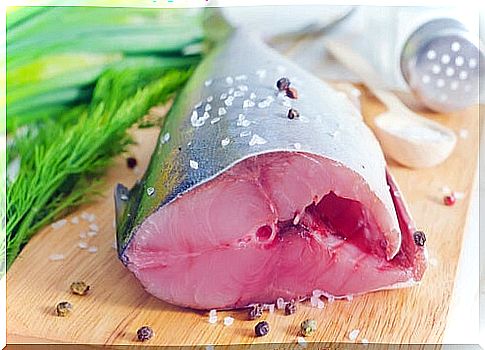
Fatty fish are an excellent source of omega 3, a type of healthy fat that has been linked to lowering cholesterol and other heart problems. This lipid, which is absorbed only through diet, promotes the cleaning of the arteries and reduces circulatory difficulties.
In addition, since they bind with the amino acids and antioxidants that this food contains, they are ideal for preventing diseases caused by toxins and excess inflammation. Some recommended varieties are:
- Salmon.
- Tuna.
- Sardines
- Mackerel.
- Herring.
- Cod.
8. More foods to improve your circulation: beets
Beetroot is a rare vegetable in the kitchen, but it attracts great interest for its nutritional qualities. It contains a little of almost all the vitamins and minerals that the body needs, highlighting fiber, folates, vitamin B6 and magnesium.
Its blood pressure lowering effect is interesting, related to the high presence of nitrates in beets.
These are converted into nitric oxide, a molecule capable of dilating blood vessels. However, it should be noted that the effect lasts a few hours and regular consumption is necessary.
9. Berries
These small fruits are another of the foods to improve your circulation. They have a powerful natural pigment responsible for its striking blue, purple and red color. They are anthocyanidins traditionally used as a food coloring.
But this compound also has some positive health properties linked to the vascular system. As scientific studies indicate, they exert a strong antioxidant action, prevent arterial stiffness and help reduce pressure.
Especially noteworthy are açai, blue and red cranberries, blackberries, currant and bilberry. Although all the leaves, roots or edible plants with these colors have some quantity in their composition.
10. Tomato
This vegetable is one of the queens of salads and many other dishes around the world. And also an excellent source of health that allows to strengthen arteries and veins and prevent the appearance of future vascular pathologies.
Lycopene is responsible for its positive effects in this regard. Science shows that it is antioxidant, anti-inflammatory, improves the function of arterial walls and allows blood pressure control.
It is interesting to know that with heat this compound increases its properties and is better used when accompanied by olive oil or other fat. This is why tomato sauce or ketchup have higher amounts of lycopene.
Other ways to improve your circulation
In addition to enjoying these foods more regularly in your diet, remember that you must improve other lifestyle habits in order to achieve the improvement you want.
In this sense, it will be necessary to minimize the consumption of sweets, energy drinks, alcohol, caffeine, saturated fat and trans fat. You should also increase your water intake.
On the other hand, do not put aside the practice of sports, as it will help you feel better, day by day. If you don’t know how to start a routine, talk to your doctor for some recommendations and, if you consider it, consult a personal trainer.
Remember that, if you decide to consult with the coach, you should inform him if you have any medical condition, so that he takes it into account and designs an appropriate exercise plan for you.



